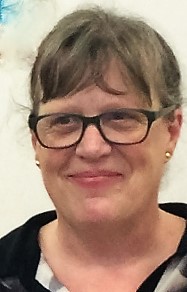| Pages in topic: < [1 2] | Poll: Is "inclusive language" something that has affected your language pair(s)? Thread poster: ProZ.com Staff
|
|---|
| My language is no good at handling inclusivity | Oct 25, 2022 |
And that doesn't mean you have to be rude to anyone, it's just that some will take offense anyway. Every Russian noun has a gender, and some of them remain masculine even when referring to a woman. It's a long-standing tradition, you don't have to add a feminine ending when talking about a lady who's a professor, doctor, or author. On the other hand, there are feminine versions of 'teacher' or 'artist'; they are beautiful and convey all the respect in the world. Woke people, however, want femini... See more And that doesn't mean you have to be rude to anyone, it's just that some will take offense anyway. Every Russian noun has a gender, and some of them remain masculine even when referring to a woman. It's a long-standing tradition, you don't have to add a feminine ending when talking about a lady who's a professor, doctor, or author. On the other hand, there are feminine versions of 'teacher' or 'artist'; they are beautiful and convey all the respect in the world. Woke people, however, want feminine endings for every word. And here's a problem: the convention seems to be that just one ending (-ka) will work with every word, but they're not consistent there (maybe because they suspect that this simplification is ruining the language and making them a laughingstock). Here's another problem: I can come up with over a dozen ways to make a masculine word feminine, and if I make a list of those versions, the result will be hilarious. The woke are also silent about how they should treat the masculine word meaning 'human being.' Again: many versions are possible. Anyway, I'm happy I don't have to translate woke stuff. Making a language like mine evolve towards true inclusivity is a task that requires time, talent, and research; spherical wokeness in a vacuum isn't enough ▲ Collapse
| | | |
I translated a video course about inclusive language and related issues. To tell you the truth - and I know this is not politically correct - I thought it was a bit silly and over the top!
BTW: it is not possible in Danish to refer to one person as 'they', that will just be confusing. However, there are other pronouns corresponding to e.g. 'this one' or 'the person in question' etc.
| | | | AnnaSCHTR 
United States
Local time: 01:43
English to Czech
+ ...
| Not only about gender | Oct 25, 2022 |
Teresa Borges wrote:
First of all, it looks like this question infers that inclusive language is just about gender when in fact it's about respecting all people by acknowledging their specific experiences. One of my source languages is French, a language that has been deeply affected by inclusive language, but curiously enough not the documents I have been translating…
As Teresa said it is NOT only about gender.
Slavic languages make it impossible to be truly 100% gender inclusive without twisting our grammar and the entire language beyond recognition. The language is our culture. To destroy it serves no one.
However, the issue of not using terms other people might find offensive is valid, and I usually do my best to follow the guidelines. That applies to ethnicity, health, age and some other characteristics. Woke or non-woke, I don't see anything wrong with using common sense and sensitivity. Perhaps, as I get older, I just value kindness at bit more. Just my 2 cents.
| | | | Michael Newton 
United States
Local time: 02:43
Japanese to English
+ ...
| inclusive language | Oct 26, 2022 |
The Argentines seem to be doing their part. Instead of "todas" and "todos", they want "tods". Instead of "bienvenidas"
and "bienvenidos", it's "bienvenids". This sounds a bit like Catalan, but I could be wrong. I suppose "el que sigue" is now "la persona que sigue". I think the French say "bonjour a toutes et a tous". Whatever. And how will "Cosi fan tutte" be regendered?
In Chinese, the word "ta", third person singular, can be written with a flourish indicating gender or even "God... See more The Argentines seem to be doing their part. Instead of "todas" and "todos", they want "tods". Instead of "bienvenidas"
and "bienvenidos", it's "bienvenids". This sounds a bit like Catalan, but I could be wrong. I suppose "el que sigue" is now "la persona que sigue". I think the French say "bonjour a toutes et a tous". Whatever. And how will "Cosi fan tutte" be regendered?
In Chinese, the word "ta", third person singular, can be written with a flourish indicating gender or even "God" but the pronunciation is the same.
In Japan, women writers used to be referred to in print and in the bookshops as "joryuu sakka" (literally "writers of the female persuasion"). Now, fortunately, the women are melded in with the men, in print and in the bookshops.
I wonder if people in non-English speaking regions are now insisting on "their pronouns". I hear customers at NatWest at greeted by employees proudly displaying their pronouns on the uniforms. I also hear some NatWest clients have changed banks. ▲ Collapse
| | |
|
|
|
Yetta Jensen Bogarde wrote:
BTW: it is not possible in Danish to refer to one person as 'they', that will just be confusing.
It's confusing in English, too. There's a long literary tradition of using "they", "their", etc., to refer to an unspecified person of either gender. For example, "Anyone who thinks XXXX is a good idea will soon change their mind." Jane Austen did it, as did Shakespeare and others. However, using those pronouns to refer to a specific individual just seems odd.
The people who thought that up didn't think it through properly, because even though it works, sort of, in English, it may not in other languages. In Greek there are three third person plural pronouns, masculine, feminine and neuter, so that leaves them back where they started.
Why not just invent a new set of pronouns, if you really must? I read somewhere that they did that in Sweden.
| | | | | An imperfect solution | Oct 26, 2022 |
While "they" and "their" is a bit awkward, I find it preferable to the ultra-awkward "he/she" and "his/her" solution.
JP
Philip Lees wrote: Yetta Jensen Bogarde wrote:
BTW: it is not possible in Danish to refer to one person as 'they', that will just be confusing.
It's confusing in English, too. There's a long literary tradition of using "they", "their", etc., to refer to an unspecified person of either gender. For example, "Anyone who thinks XXXX is a good idea will soon change their mind." Jane Austen did it, as did Shakespeare and others. However, using those pronouns to refer to a specific individual just seems odd. The people who thought that up didn't think it through properly, because even though it works, sort of, in English, it may not in other languages. In Greek there are three third person plural pronouns, masculine, feminine and neuter, so that leaves them back where they started. Why not just invent a new set of pronouns, if you really must? I read somewhere that they did that in Sweden.
| | | | | The language professional's view | Oct 26, 2022 |
Justin Peterson wrote:
While "they" and "their" is a bit awkward, I find it preferable to the ultra-awkward "he/she" and "his/her" solution.
Sometimes it's more awkward.
"Jay is trans. They are quite open about it."
Why should the verb in the first sentence be singular and the one in the second be plural, when we're talking about the same person?
Or should we write: They is quite open about it? Or: Jay are trans?
As I said, this hasn't been thought through properly.
| | | | Samuel Murray 
Netherlands
Local time: 08:43
Member (2006)
English to Afrikaans
+ ...
| Afrikaans/South Africa | Oct 26, 2022 |
ProZ.com Staff wrote:
"Is "inclusive language" something that has affected your language pair(s)?".
In my target language (Afrikaans), the word for "nurse" literally means "female nurse" but it is commonly understood to mean a nurse of any gender in a physical health setting; whereas the word that actually means "male nurse" is generally understood to be a nurse of any gender at a psychiatric institution. This use of these two words has a history, of course, but when deciding to use or not to use either, one has to ask oneself whether they do actually stereotype the professions in the minds of speakers in general, and whether it truly matters. Wokeness is certainly a thing, also in Afrikaans, so an author may be wise to avoid the normal word for "nurse". As a consequence, nurses at hospitals are now often referred to in Afrikaans as "nursing specialists" (which is mostly not a problem, though it does become problematic in the text about specialist nursing...).
A similar thing happens to the word for "secretary" in Afrikaans. The word for an office secretary literally means "female secretary" in Afrikaans, and the word that means "male secretary" is used exclusively for the secretary of an association or a board of directors. This leads to having to use alternative words to refer to office secretaries, such as a word that means "personal assistant" or "office manager".
In South Africa, people of mixed race are traditionally referred to as "coloured people" (unlike in the US where the term "coloured" referred to black people), whereas the more modern term that is preferred by many people of mixed race is "brown people", a term that actually sounds offense when used in other countries.
There is a law in South Africa whose purpose is provide opportunities for non-white people, but it was considered politically incorrect to use the term "non-white", the reasoning being that using that word would imply that being white is somehow the norm. So eventually the lawmakers settled on not using a single word that means "non-white" but instead using a list of terms that exclude "white", namely "black, coloured, Indian and Asian". This makes the text of the law somewhat more cumbersome, but it is less offensive to those who are sensitive to such issues.
It can sometimes be difficult for me to have an understanding of wokeness in reference to my country of origin, as I tick all the wrong boxes: I'm male, I'm white, I'm middle-class, I speak a prestigious language (in my country of origin), most of my extended family work in professions that are socially revered, my extended family all own property, I've had a privileged secondary education, I have had tertiary education, and I emigrated. And I'm generation X.
Robert Rietvelt wrote:
What is ... 'inclusive language'?
To use inclusive language means to use grammar, syntax, morphemes, words and phrases that are more sensitive to the fact that some words can be exclusionary or affirm a potential stereotype. It has a significant overlap with wokeness although it's not quite the same thing.
A simple example in English would be to use "flight attendant" instead of "stewardess". Another example is when an announcement is made on a public transport tannoy, to replace "ladies and gentlemen" with "dear passengers" or "attention passengers". Attempts at inclusive language sometimes do not catch on or sound odd when first introduced, e.g. using "waitron" instead of "waitress". Inclusive language can also include using a word that raises the status of the subject (e.g. referring to a seamstress as a "tailor", or referring to a carpenter as a "cabinet maker").
Denis Fesik wrote:
Woke people, however, want feminine endings for every word.
And this shows, unfortunately, that what is "inclusive" in one country make be "excluding" in another. In my target language (and also in English), the trend is to *avoid* feminine indicators as much as possible, whereas I understand that in some languages the trend is to have *more* feminine indicators. Indeed, in my current country of residence (the Netherlands), inclusive language often means to try one's utmost to use a feminine form of a word whenever the word refers to a woman, because it is felt that a gender neutral word would imply that the person is male.
[Edited at 2022-10-26 09:07 GMT]
| | |
|
|
|
expressisverbis
Portugal
Local time: 07:43
Member (2015)
English to Portuguese
+ ...
| My opinion for what it's worth | Oct 26, 2022 |
Translators like us and any linguistic professional who has in-depth knowledge of their native language do not need "inclusive language" to respect people.
If, in Portuguese, I need to translate, for example, the words "os alunos" (the students) I can translate it literally, or use another formula like "comunidade ou grupo estudantil" (student community/group) or even use "os alunos e as alunas" (using both genders).
When I use the literal (masculine) translation, I am in no way dis... See more Translators like us and any linguistic professional who has in-depth knowledge of their native language do not need "inclusive language" to respect people.
If, in Portuguese, I need to translate, for example, the words "os alunos" (the students) I can translate it literally, or use another formula like "comunidade ou grupo estudantil" (student community/group) or even use "os alunos e as alunas" (using both genders).
When I use the literal (masculine) translation, I am in no way disrespecting anyone, because it was always implied both genders and Portuguese grammars always confirmed this.
Anyway, I don't have any problems in accepting the use of the new wording proposed by inclusive language.
But, I really can't agree with the following:
"Todes es leitoris que forem amigues de lingue portuguese, que estiverem habituadix aus clássices, que prezarem peli usi d@ gramátic@ em sue melhor forme, estranharão esti novi formate di escritx." (All readers who are friendly with the Portuguese language, who are used to the classical literature, who value the use of grammar in its best form, will find strange this new wording.)
If this sentence obeyed the "rules of inclusive language" with the use of "a neutral gender", it would look like this.
Have any native speakers of Portuguese ever imagined this and thought about the consequences for all linguistic professionals, including us?
It seems the new spelling agreement was not enough...
[Edited at 2022-10-26 09:16 GMT] ▲ Collapse
| | | | | On inclusivity in general | Oct 26, 2022 |
I still can't put my finger on what it is in a language. Is it just about having good manners? Never using offensive words to refer to someone present, especially someone representing a minority? Well, I don't use them anyway, and I've never read a single inclusivity guidebook. I used to work in a multi-national, multi-ethnic crowd and don't remember any talks that were capable of offending anyone there. A baby is born with nothing but rights, but a grown-up is supposed to assume a set of respon... See more I still can't put my finger on what it is in a language. Is it just about having good manners? Never using offensive words to refer to someone present, especially someone representing a minority? Well, I don't use them anyway, and I've never read a single inclusivity guidebook. I used to work in a multi-national, multi-ethnic crowd and don't remember any talks that were capable of offending anyone there. A baby is born with nothing but rights, but a grown-up is supposed to assume a set of responsibilities commensurate with the set of rights. It shouldn't work otherwise. Some people are proud of their ability to speak 'the truth' in anyone's face like it's nothing (according to them, the people who can't do so are wimps and hypocrites). For me, choosing to attack anyone verbally is a decision by which I am assuming a level of authority that puts me above the vis-a-vis and a level of knowledge, understanding, or competence superior to theirs (the word 'attack' wasn't supposed to imply the use of invective, at least not in my case). Will I refrain? Maybe I won't if I'm talking about translation-related things, but as a general case, I probably will. And it will be my conscious decision not dependent on any guidebooks. If someone fancies constructing a language guaranteed to equalize everyone and normalize everything (utopia, huh?) and then make the use of it mandatory for me, I'll do my best to get out of that Procrustean bed
[Edited at 2022-10-26 09:24 GMT] ▲ Collapse
| | | | | Coincidentally... | Oct 26, 2022 |
...I have just written "Ru Paul themself". It came out without hesitation, reflecting the length of time this pronoun usage has been around now (or the contexts I often translate in).
| | | | Michael Newton 
United States
Local time: 02:43
Japanese to English
+ ...
| "inclusive language" | Oct 27, 2022 |
In American English, it is not unusual to hear "a person and their interests". It has been used long before the wokerati made their appearance and appears to have broken the logic barrier and does not at all sound strange. Btw, come the first snowfall, I will be building a snowperson and buying gingerbread persons at Trader Joe's (the US arm of Aldi).
| | | | | Pages in topic: < [1 2] | To report site rules violations or get help, contact a site moderator: You can also contact site staff by submitting a support request » Poll: Is "inclusive language" something that has affected your language pair(s)? | Wordfast Pro | Translation Memory Software for Any Platform
Exclusive discount for ProZ.com users!
Save over 13% when purchasing Wordfast Pro through ProZ.com. Wordfast is the world's #1 provider of platform-independent Translation Memory software. Consistently ranked the most user-friendly and highest value
Buy now! » |
| | Protemos translation business management system | Create your account in minutes, and start working! 3-month trial for agencies, and free for freelancers!
The system lets you keep client/vendor database, with contacts and rates, manage projects and assign jobs to vendors, issue invoices, track payments, store and manage project files, generate business reports on turnover profit per client/manager etc.
More info » |
|
| | | | X Sign in to your ProZ.com account... | | | | | |































